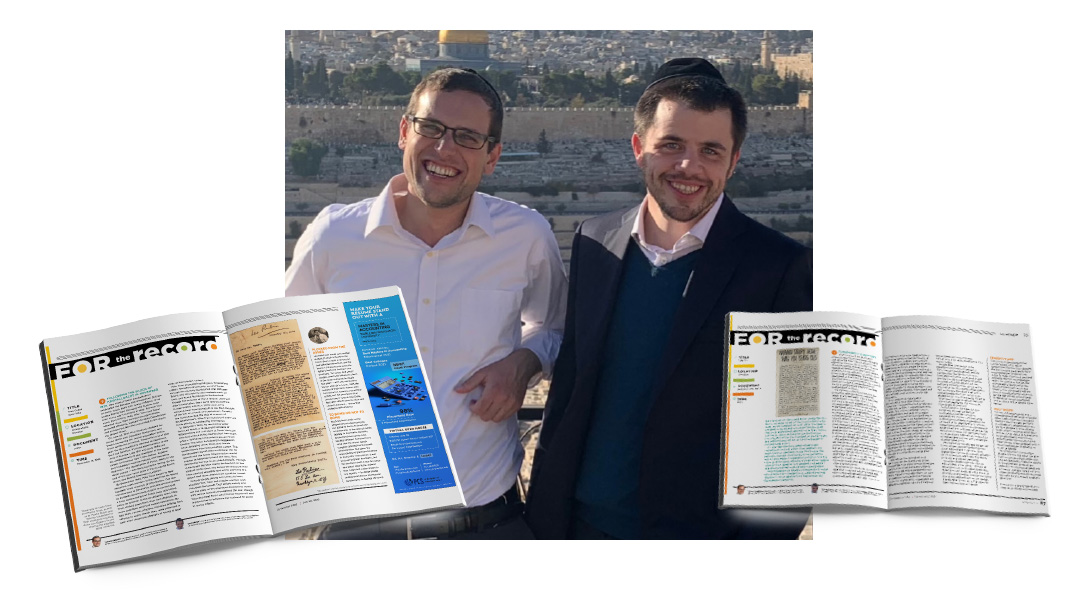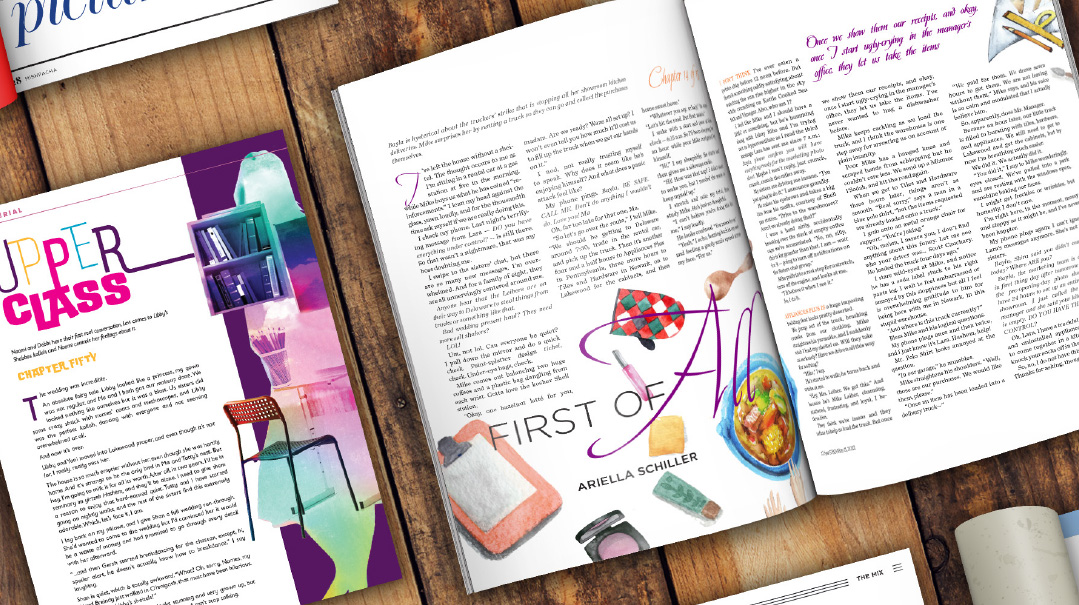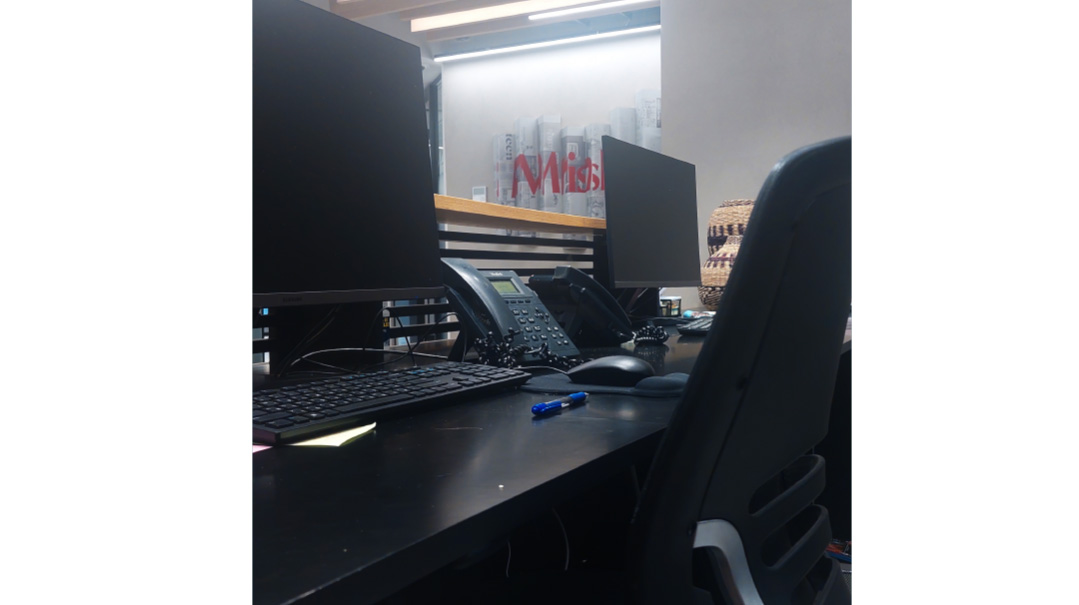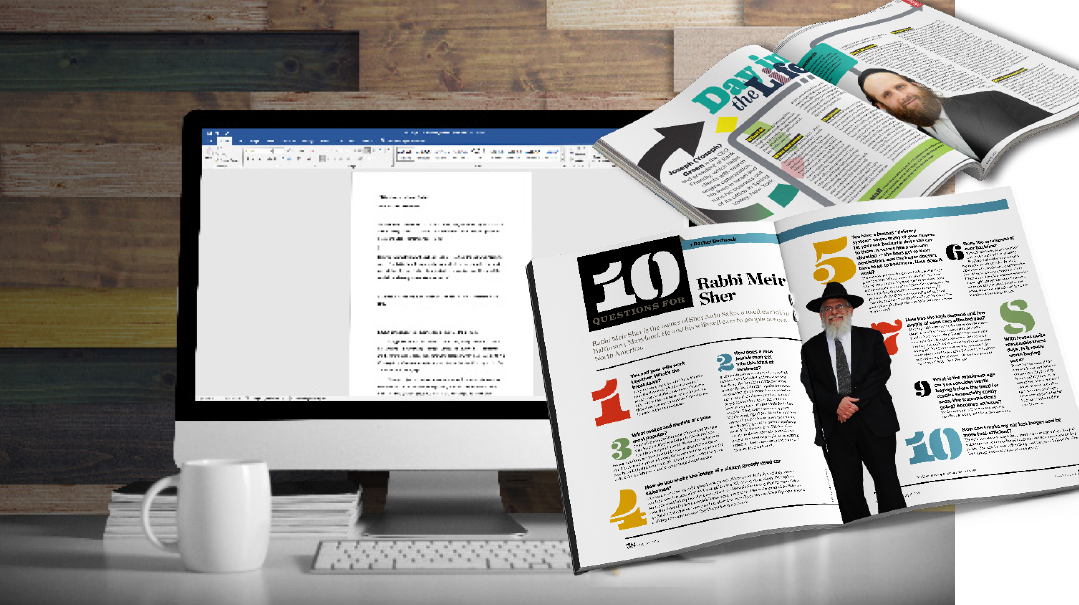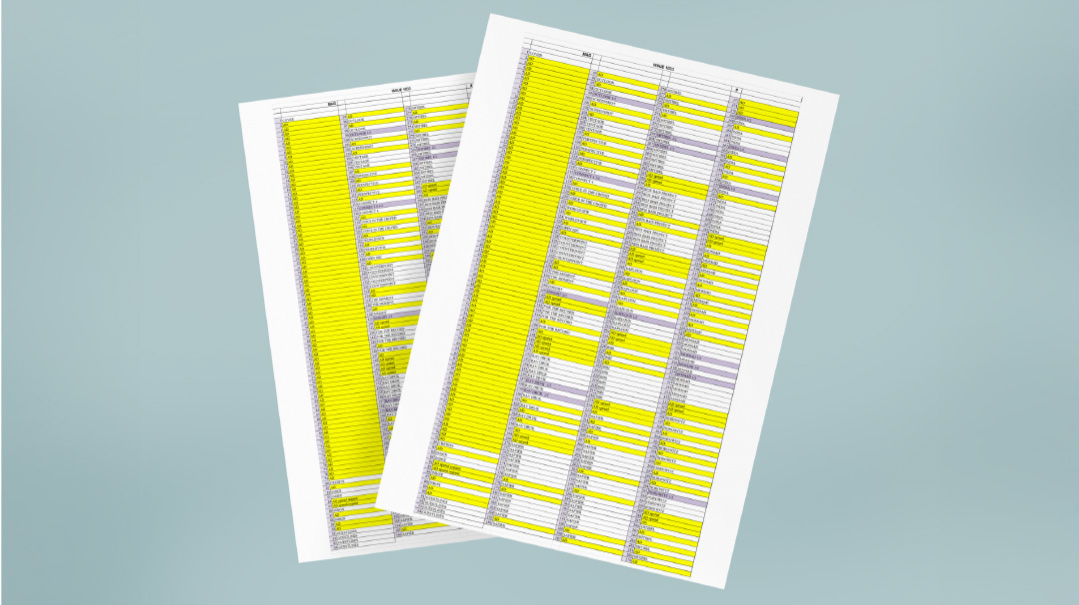20 questions for Binyamin Rose
| May 7, 2024As editor at large since 2018, Binyamin provides incisive commentary on US and Israeli political affairs.
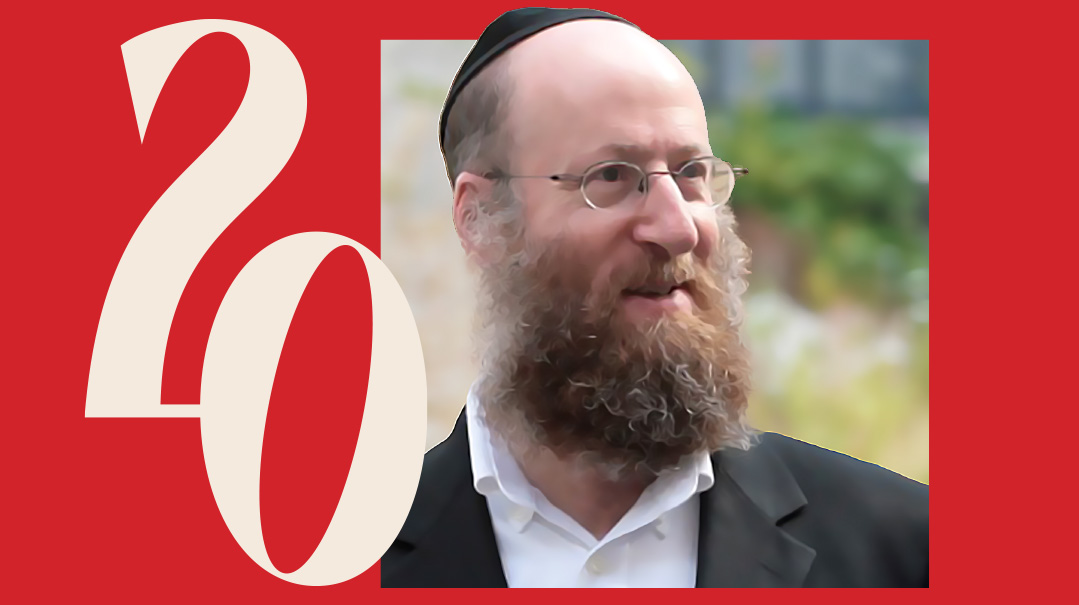
Binyamin Rose entered the journalism field in 1978, reporting for two daily New Jersey newspapers and managing news departments at three radio stations before embarking on additional careers as a financial advisor and project manager for a public relations firm.
Binyamin returned to journalism in 2004 as news editor when Mishpacha launched its English-language edition. He has traveled to 25 countries on five continents to interview prominent newsmakers and politicians.
As editor at large since 2018, Binyamin provides incisive commentary on US and Israeli political affairs.
My ideal work environment
A large event, like an AIPAC or political convention. I draw energy from crowds.
Deadlines make me
A more disciplined writer.
I learned the most from writing about
Albert Einstein, in Issue #52 on the 100th anniversary of his Theory of Relativity.
The accomplishment I’m proudest of
Interviews with the Bostoner Rebbe and Rabbi Noah Weinberg shortly before each was niftar. They both inspired revolutions in chessed and kiruv.
The best piece of advice I got
“Write so the guy who drives a Pepsi truck can understand you…”
—From my editor at a Charlotte, North Carolina radio stations and weekly newspaper
What was your first assignment?
My byline first appeared in the Bergen Record on an obituary for a local police chief. I interviewed his wife about his life and career.
My first on-site feature was a story on high-rise window washers in Newark, New Jersey. My photographer climbed onto the scaffold with the washers, but I was too scared. That’s when I learned that photographers are always more daring than writers.
My first feature for Mishpacha was in 2004, in Issue #11. It was also an obituary — this time on a world-famous figure — President Ronald Reagan.
When you were growing up, “nice Jewish boys” became doctors, lawyers, or accountants. Why did you choose journalism?
Hashem blessed me with a talent for expressing myself, verbally and in writing — I knew how to read when I was four, and in elementary school, my teachers often threw me out of class because I had the loudest voice. I always felt that if I chose a career based on what I did best, the parnassah would be there. I may not have earned what doctors, lawyers, and accountants do, but I’ve always felt professionally fulfilled and happy with my lot.
What sparked your interest in politics?
My parents always discussed politics at home. They told me I watched the 1960 nominating conventions on television with them. They took a picture of me standing in front of a camera tripod, pretending it was a microphone and that I was one of the candidates. My father worked for the Department of Defense. He was very interested in government, sincerely believing that elected officials could improve people’s lives.
Who was the coolest person you ever met?
Avraham Pearlman, whom I met in the spring of 2015. He and his wife, both Orthodox Jews, lived on an isolated farm in the remote town of Jonesport, Maine. Living close to nature without electricity, running water, or indoor plumbing, they grew all their own food and cooked everything on a wood-burning stove. I was impressed with their emunah and bitachon, living such a life.
How do you stand out as a Jew in your line of work?
My dress doesn’t change, no matter where I go. I walked the streets of Havana, Cuba, in my black hat (local Jews told me the natives probably mistook me for a priest). I’ve also walked for hours in the streets of European capitals and all over America dressed like an Orthodox Jew. Hashem protected me.
Did you ever think of a career switch?
I switched careers twice. As a journalist chasing politicians and businessmen for interviews, I often felt like an outsider looking in, and I wanted to be the insider. I had developed an itch for investing in the stock market and my best friend, who was also my broker, told me I knew more than most of his colleagues, and he encouraged me to apply for a job at the firm where he serviced my account. I worked in the financial markets from 1985 until 1998, even after making aliyah.
After that, I spent two years in kollel before taking a job in public relations for three years, then pivoting to join Mishpacha at the inception of the English magazine. The one job I might still consider would be to work as a political strategist or on a politician’s communications team.
What’s the biggest mistake that was accidentally published? How many people noticed?
I wouldn’t say this was accidentally published, but on election night 2020, when Donald Trump was leading Joe Biden after vote tabulators in most states had gone home for the night, I tweeted that I thought Trump would win. I completely underestimated how many absentee ballots were out there and how overwhelmingly they would go in Biden’s favor. I don’t know how many people noticed, but later the next morning, when Biden pulled ahead, someone commented on my tweet: “That didn’t age well.” Neither has Biden, but that’s a campaign issue for this year.
What was the biggest gaffe you made in your career using technology?
As a radio newsman in Dover, Delaware, I covered news conferences given by Governor Pete duPont. I usually tried to keep track of the recording in progress, but once, I left my recording device near his podium and sat too far away to monitor it. After the news conference ended, I realized my tape had jammed and I had no sound bites. Facing no other choice, I sheepishly knocked on the governor’s door. He was a gentleman. After I explained my dilemma, he agreed to answer a few questions one-on-one.
What are the hardest stories you ever had to cover?
The hespedim for the eight Mercaz Harav yeshivah students killed in a terrorist attack on Rosh Chodesh Adar in 2008. The parents of the victims were in anguish but were unbelievably brave. And the 2017 evacuation of Amona still haunts me. Watching IDF soldiers dragging and pulling 42 families from their homes in this yishuv — all to curry favor with the Palestinians, who will never reciprocate, and with the US, who are always seeking the next goodwill gesture we can offer our enemies — was disgraceful.
What was the most heartwarming story you ever covered?
My article on Kishorit for the Succos edition in 2016. I had discovered the yishuv on a tiyul with my wife a few months earlier. Two secular Jews from Tel Aviv with big hearts and dreams established a community for special-needs adults in Kishorit in Western Galilee. They empowered more than 170 young people to live with dignity and confidence, training them in winemaking, farming, producing goat milk, grooming horses, and breeding prize-winning dogs. It’s a remarkable community, and they were close to finishing construction on their first shul when I visited.
How do you ensure your content feels fresh when it’s often only read close to a week after print?
That’s the most challenging aspect of my job — the bane of my professional existence. There’s nothing worse than writing a piece that becomes badly dated when published, but I can only think of one or two occasions when that happened. Mainly, I chalk it up to experience. News stories have cycles that tend to follow a pattern. There is rarely a clear beginning and end. So I try and grab a piece out of the middle and envisage how it may develop over the coming days.
What is your favorite piece or column in the magazine?
I always enjoy Rabbi Reuven Leuchter’s material. I’ve always been a mussar man — the more direct, the better. Rabbi Leuchter is direct but he takes a sensible approach, with practical examples that leave me with takeaways for self-improvement and how to look at problems constructively.
How do you build trust or rapport with politicians who have only given you ten minutes of interview time?
It’s not easy. I always begin by taking 30 seconds out of my allotted time to thank them for their time, giving a brief background on our publication and its reach and why we thought it important for our readers to reach out to them and hear their views. After that, I keep questions concise and make sure to ask some follow-up questions so that they see that I’m listening to them and not just flinging questions off a prepared list.
How do you prepare for your interviews? What kind of “homework” do you do?
When interviewing authors, I read their books in advance and mark areas of interest. Before interviewing politicians, I review their backgrounds, search for the latest articles and profiles on them, op-eds they’ve authored, and their social media postings. Asking them about a recent post is a great conversation opener and is an easy way to show them I’ve done my homework. I also listen to previous interviews they’ve given to familiarize myself with the sound of their voice, whether they give short or long answers, and their cadence to figure out where I can politely interject if they start rambling or dishing their talking points.
How do you plan your time to get the most material out of a busy convention?
It’s a must to review the agenda in advance to figure out the most important events to attend and people worth meeting. But once I’m on the ground, spontaneity is the secret to success at on-site events; I need to grab any opportunity that presents itself.
How have the readership’s news tastes changed over these 20 years?
Readers are far more interested and engaged in the news, which is one reason we’ve gone from four to eight pages of news to an expanded section that we call The Current. A lot of the heightened interest started with Donald Trump’s ride down the escalator at the Trump Towers in 2015 to declare his candidacy for president. Everyone has a strong opinion about Trump, in either direction, and as a marketing genius, Trump knows how to keep politics and his name in the news. Our readers also realize that when it comes to news about Israel, they can count on our Jerusalem-based team to give them the pro-Israel angles that the mainstream media ignores.
What’s the biggest travel snafu you experienced?
On my trip to Ecuador in 2010, I flew Tel Aviv-New York-Miami-Quito. Before my return flight, I tried to check in online. Somehow, the Quito-to-Miami leg had disappeared. Because of the time difference, my travel agent was unreachable, so I went to the check-in counter in Quito and explained my predicament, in English to the airline agent. She started typing on her keyboard. Then she shook her head. She typed some more and shook her head again. I started to get nervous. Then she told me she only had a seat in business class and I would have to pay $780 more. I asked her to keep checking. Finally, after typing some more she nodded and got me a seat on the Miami flight at no additional cost. That was a close call.
Can you remember disagreements with your editor/with a writer you were editing?
Baruch Hashem, they have been few and far between. When I was the news and assignment editor, I instituted a “readback” policy where we would send the edited article back to the writer for comment. I believe we still do this. It’s a win-win because the writer gets one more chance to push back and both the editor and writer learn each other’s styles better, which improves the working relationship, and the final product going forward.
Tell us about the interview that got away or almost got away.
I’ve got both. I traveled to Washington in June 2017 for an interview lined up with Senator Lindsey Graham (R-SC). When my plane landed, I opened my phone and checked my emails. One of them was from his communications director canceling the interview, citing “scheduling difficulties.” I didn’t come home empty-handed, but the big fish got away.
But the interview I consider to be my best scoop almost got away. It was with Csanad Szegedi, a leader of Hungary’s anti-Semitic Jobbik Party, who suddenly learned he was Jewish when his grandmother told him she was an Auschwitz survivor.
I had been to Hungary on assignment a year earlier and had forged a relationship with Rabbi Baruch Oberlander, Budapest’s av beis din, who told me he was tutoring Szegedi in Judaism. I asked if he was giving interviews. Rabbi Oberlander said Szegedi wasn’t ready yet, but agreed to grant me an exclusive in the chareidi media as soon as he was willing.
In August 2013, Rabbi Oberlander told me to book a flight to Budapest. The interview would be held in his home, and he would be the interpreter. The interview came off and was published in our Succos edition that year, but it was only after the fact that I learned how close I came to getting scooped. A few weeks before my appointment, Szegedi underwent a bris milah. The mohel tipped off a journalist from a competing chareidi publication, who accompanied the mohel to Budapest. I don’t know if Szegedi knew of my arrangement with Rabbi Oberlander, but he insisted the bris be private and completely off the record to press coverage, thus preserving my exclusive.
Whatever happened to your satirical Seriously Speaking column? I miss it!
Thank you. Seriously Speaking had a run of more than nine years. When the editors decided they wanted to give the back section of the magazine a new look, I was asked to relinquish that page. For a year prior, I’d already had difficulty finding topics, so I was happy to be a team player and comply. I often wish I had restarted it during the Trump administration, when I could have written a new satire almost every day. Well, we may get another chance after November 2024….
(Originally featured in Mishpacha, Issue 1010)
Oops! We could not locate your form.

